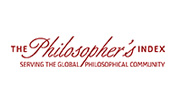Infallible Divine Foreknowledge Cannot Uniquely Threaten Human Freedom, But Its Mechanics Might
T. Ryan
Regent University
DOI: https://doi.org/10.24204/ejpr.v4i4.261
Abstract
It is not uncommon to think that the existence of exhaustive and infallible divine foreknowledge uniquely threatens the existence of human freedom. This paper shows that this cannot be so. For, to uniquely threaten human freedom, infallible divine foreknowledge would have to make an essential contribution to an explanation for why our actions are not up to us. And infallible divine foreknowledge cannot do this. There remains, however, an important question about the compatibility of freedom and foreknowledge. It is a question not about the existence of foreknowledge, but about its mechanics.
Keywords:






